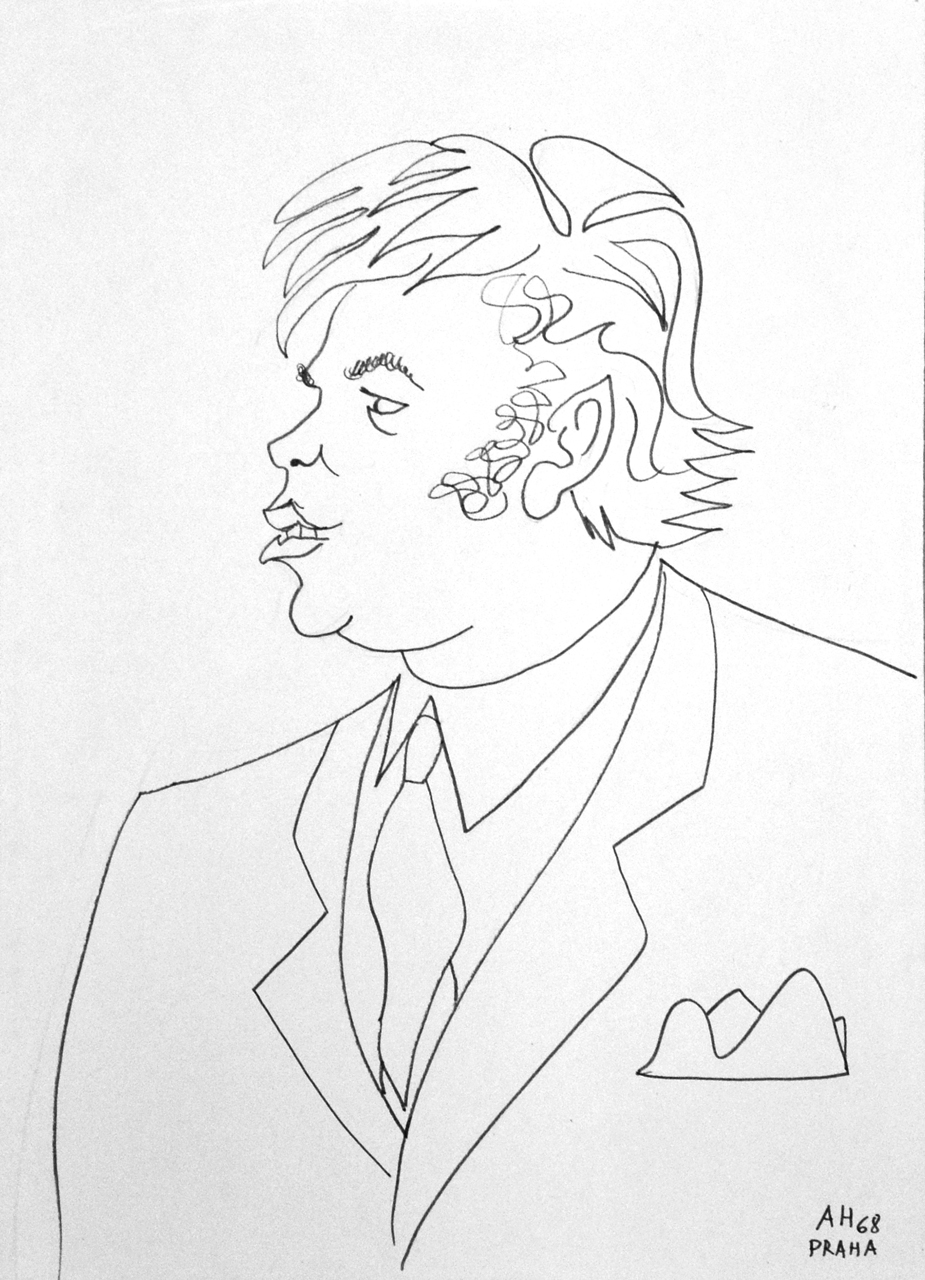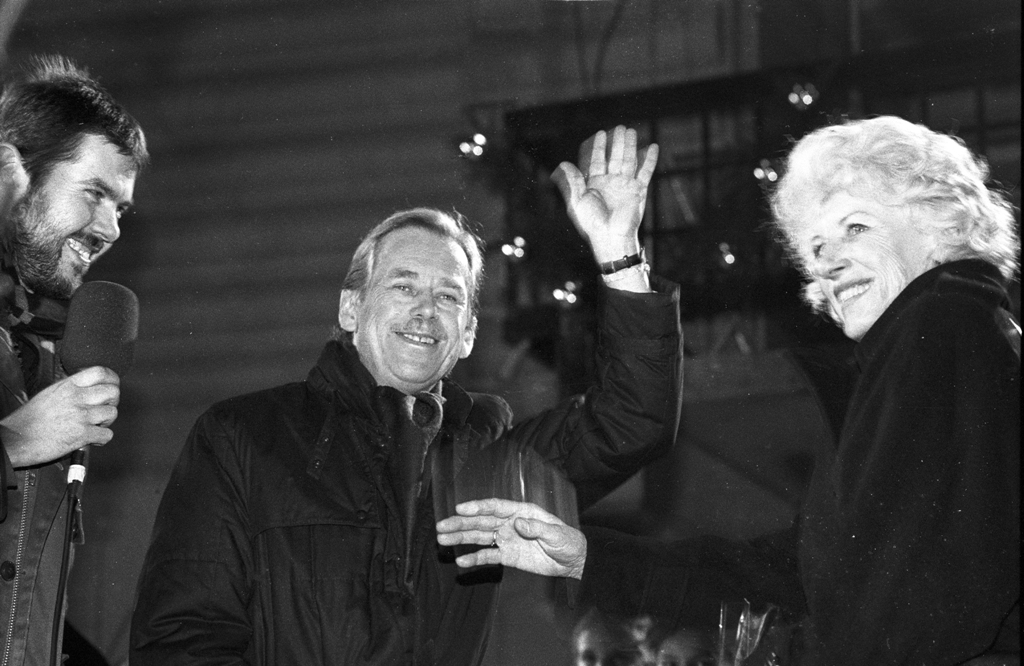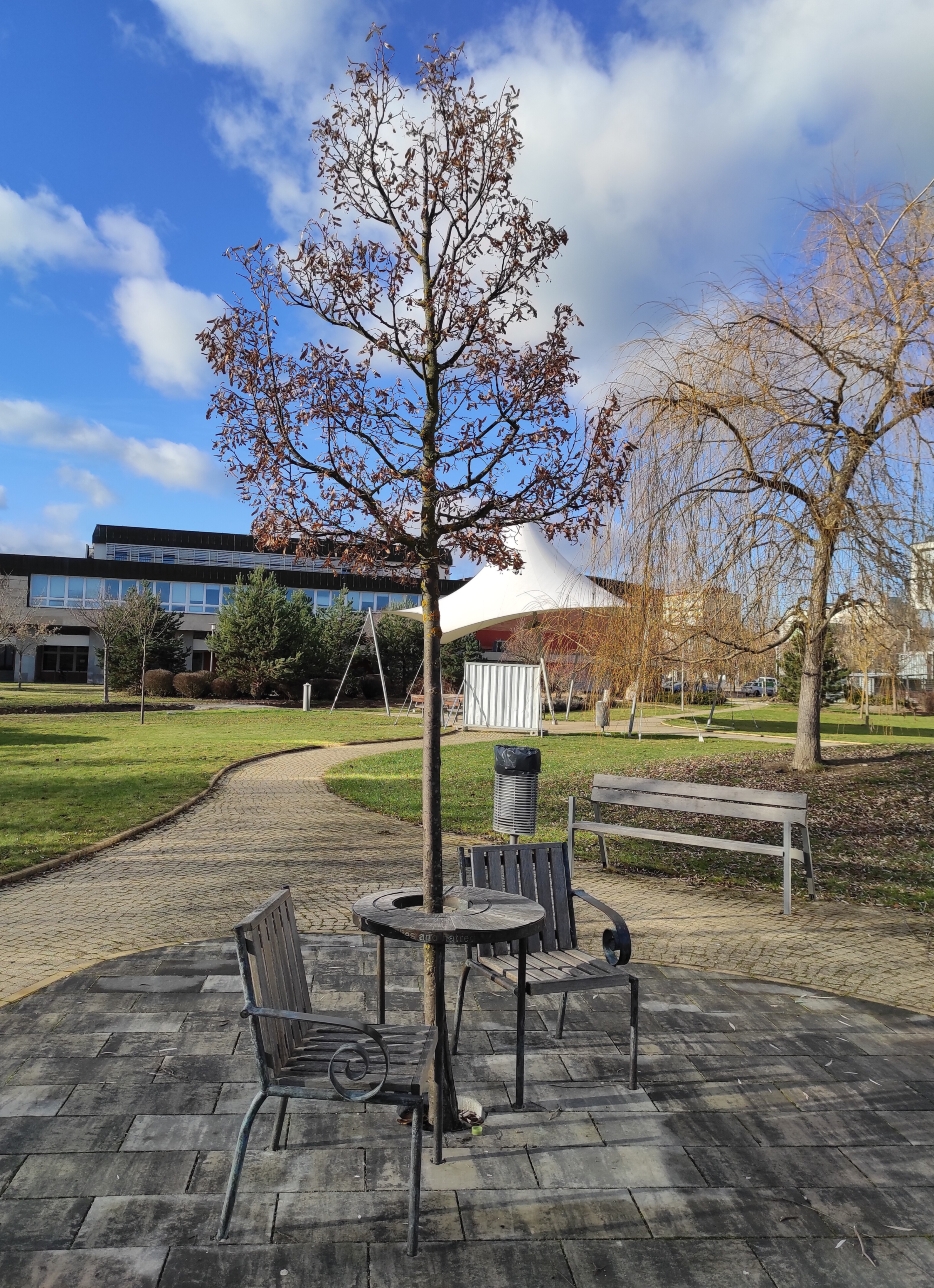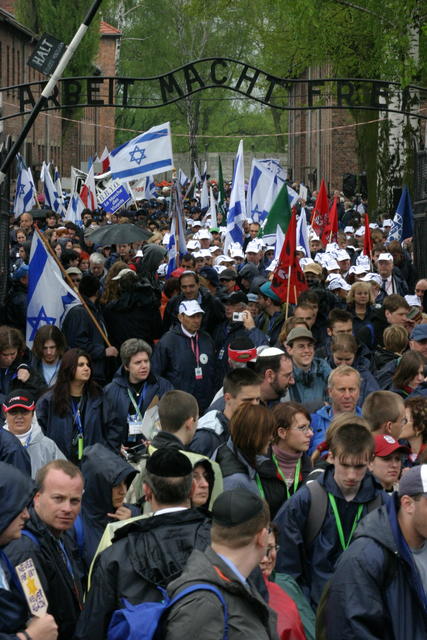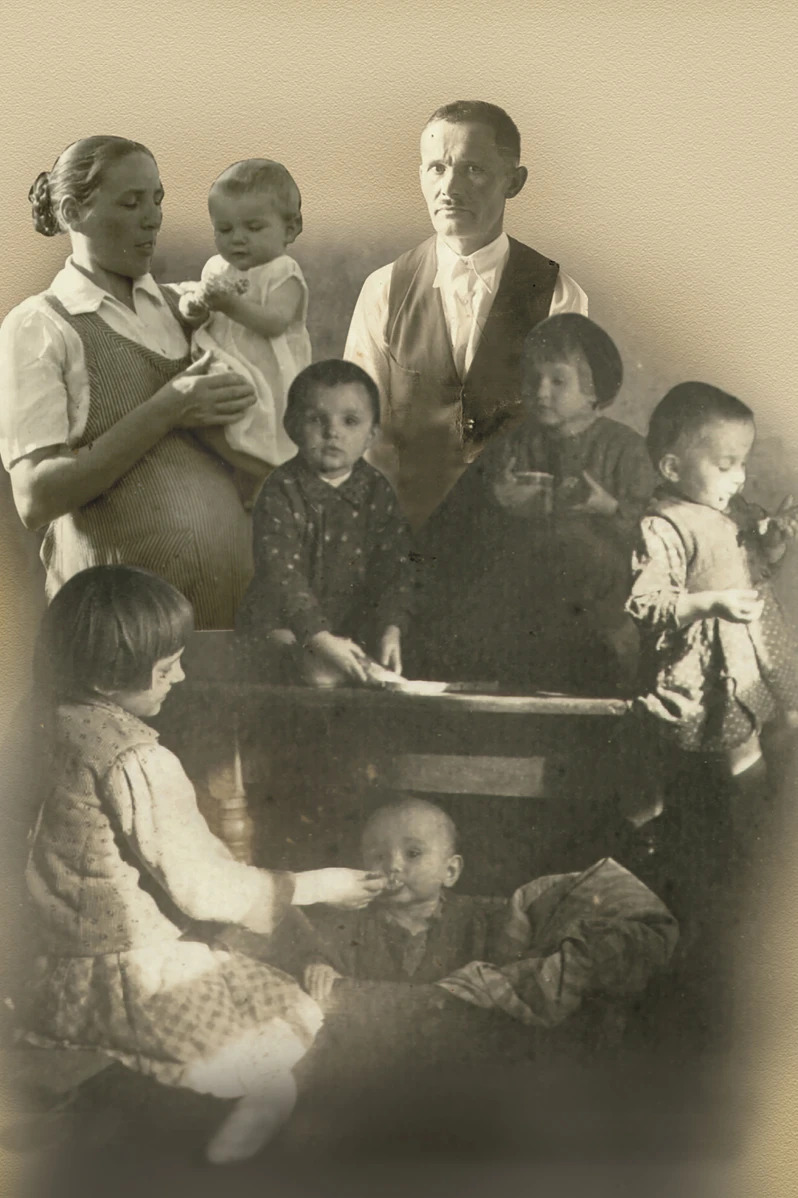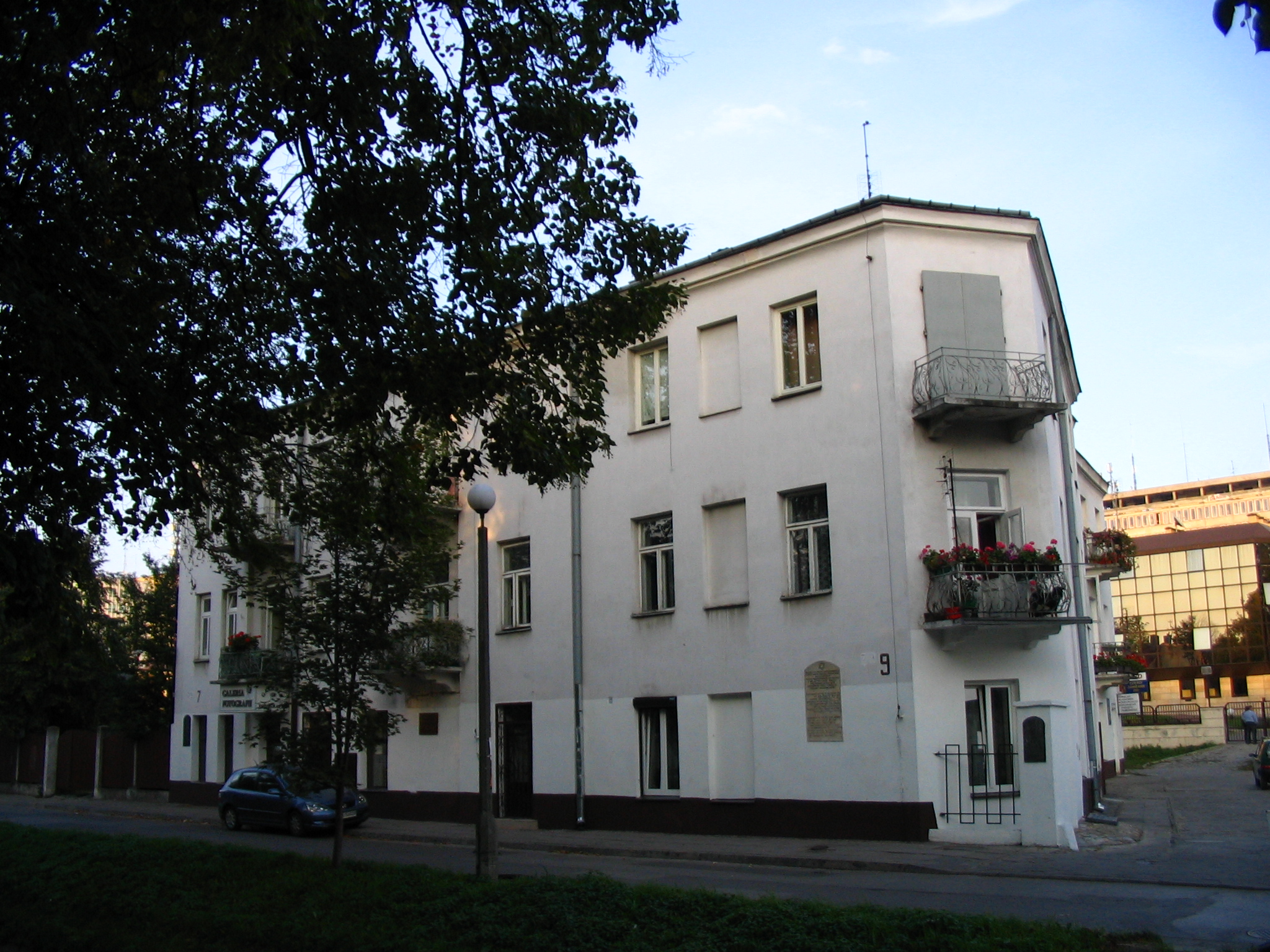Václav Havel and the intellectual dissent – Václav Havel bench, České Budějovice
Fact of the Czech figure „Velvet revolution – 1989”
Part of the „Dreaming about the democracy” topic
In the Czech Republic and many other countries, we can find Václav Havel benches, inviting people to discuss and think in the spirit of Havel’s ideals. The first Havel’s Place, as it is called in English, was installed in Washington in 2013, the second in Dublin, the third in Barcelona and then in 2014 in the Old Town in Prague and in České Budějovice. To date, you can sit on 24 benches around the world. The dissident, playwright and first post-communist president is also commemorated by a library in Prague dedicated to his legacy.
From the 1960s until the Velvet Revolution, Havel was involved in dissent and criticized the absurdity and wrongness of the regime through his literary and dramatic work. After the suppression of the Prague Spring, the mass resistance against normalization was essentially broken, and only a handful of dissidents remained. Dissent included intellectuals, writers, artists and many others. They „manufactured” so-called samizdat literature (texts that were not censored by the regime), organised an underground university, and disseminated information about the state of human rights and the political situation in Czechoslovakia.
Havel became one of the most visible dissidents and one of the initiators of Charter 77. The Charter was an informal civic initiative defending the human and civil rights which the communist apparatus both committed to and violated. Intellectual dissent played an important role in maintaining moral and ideological resistance against the communist regime. Havel, who like many other signatories of Charter 77 was unjustly tried and imprisoned several times by the communist regime in the late 1970s and 1980s, contributed significantly to the transformation of the state and society from socialist to democratic. On 29 December 1989, Havel became President of Czechoslovakia (until his resignation in the summer of 1992) and was twice elected President of the Czech Republic, from 1993 to 2003.
